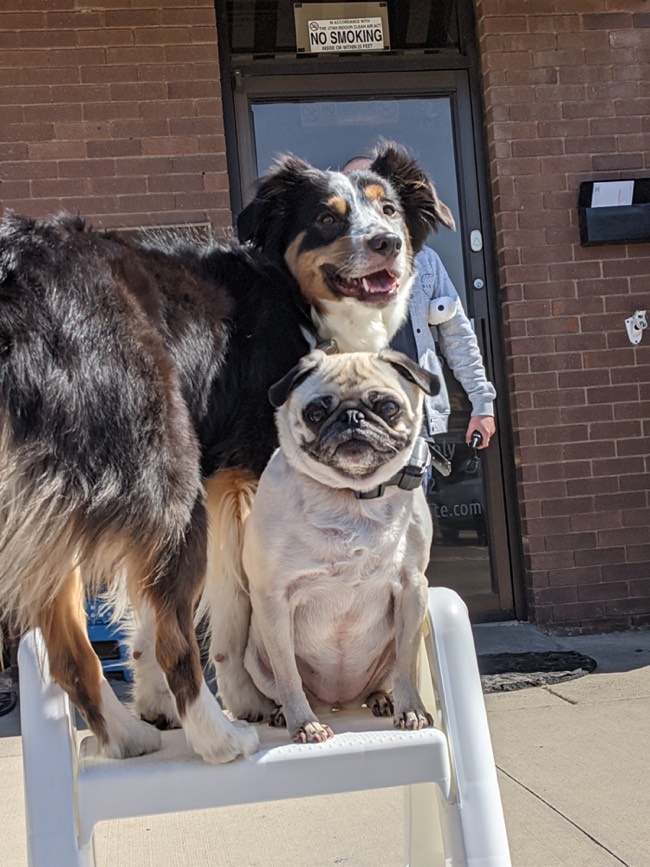Dog Training Elite Blog
Take The 1 Minute Quiz To See If YouQualify To Own A Franchise
Is YOUR City the Perfect Market for a Dog Training Elite? Here’s How to Tell
If you’re looking for a resilient, profitable business, the pet care industry is a great place to start. During the COVID-19 pandemic, it increased $8 million in revenue. By 2026, the dog training market is expected to reach over $820 million.
But is a dog training franchise the right business for your city? Location is a decisive factor in the success of any business — factors like demographics influence the demand for your services, while local regulations can add obstacles and costs to your operations.
So, what makes up a pet-friendly market that’s ready for your franchise? Ask yourself these questions to find out if your city is the perfect market for a dog training franchise.
Who’s Your Ideal Client?
Dog owners come in all shapes and sizes — from young professionals seeking to have a more active life, to families looking for a fun pet for their kids, to senior citizens looking for a pet companion.
With such a diverse pool of potential customers, it’s normal to think you’ll want to work with everyone. However, in business, the opposite works best.
The more you narrow down your ideal client, the more targeted your services and communications will be. For example, are you interested in working with families? Then, puppy and obedience training may be the obvious service choices for your dog training business.
With a Dog Training Elite franchise, you can offer several types of training:
- Obedience Training
- Puppy Services
- Service Dog Training
- Personal Protection Training
- Anxiety and Aggression Training
- Service dogs for Military/Retired Veterans
- Therapy Animal Training
While you can still offer a broad range of services, specializing will help you create a unique voice that sets your business apart.

Where Is Your Ideal Client?
Now that you know who you’ll be offering your services to, it’s time to find out where those customers are.
The South and Northwest stand out for having the largest revenue in pet training services — with $248 million for dog training services in the South alone.
The South also leads the scores in dog ownership percentages. States like New Mexico and Missouri lead the scores of dog ownership with 46% each.
With the broad range of vendors in the region offering different training, the market is sophisticated—meaning people are aware of dog training services—but are also experiencing saturation.
In other words, if you’re based in a region with high dog ownership, you’ll need to be ready for some tough competition.
However, saturated markets or locations with low dog ownership are not insurmountable obstacles. There are other factors to consider before you make a final decision.
What Are Your Ideal Clients’ Demographics?
According to Tracey Willmott, a Dog Training Elite Franchise Owner, it’s important to look up data like housing types, income levels, and economic growth in the area to find out if it’s the right choice.
Housing types may influence your potential client’s decision to opt for home-based dog training sessions, as an apartment may be too small. You’ll need to have places to carry out training sessions, which require clients to commute to the location.
Tracy suggests looking into “mid-sized cities with reasonable travel times to and from higher density areas.” She advises looking into the average incomes in each area, too.
Also, keep in mind that each pet-owning household spends on average $1,126 per year on their pets. Households with no children spend more on average on their pets than families with children.
What Are The Local And State Regulations?
Local and state regulations are something to consider when planning a new franchise. While this is especially important for pet care businesses like grooming and daycare, we’ve found that home-based training is less complex with requirements.
For example, there are no state or federal laws that require you to have a training license to set up your franchise or start training dogs.
However, there are benefits to getting a certification. If you’re new to dog training, being certified will help build credibility as you establish yourself as a new trainer.
And because DTE is a home-based business, you won’t need to deal with other requirements regarding premises.
Tracy suggests researching which regulations apply in the state. Which requirements would you need to fulfill to operate in that area? Is it financially feasible? How much time would it take you to achieve it?
How Long Is The Commute?
For other franchises, accessibility is a crucial detail when deciding your franchise location. After all, you want your business to be as easy to reach as possible.
With a home-based business, you’ll be visiting your clients in their homes. So, the commute will play a big role in how many clients you can visit a day.
It’s important to consider how well-connected the area is. Traffic, public transport schedules, and accessibility may be issues you’ll want to look into, depending on your needs. Transportation costs can add up, as well.
And there you have it. To determine if your city is the right market or a dog training franchise like Dog Training Elite, define who your potential client is, where they are, and how convenient the area is in terms of transportation and regulations. And if you’re ready to learn more about franchising with DTE, please visit our website today!


